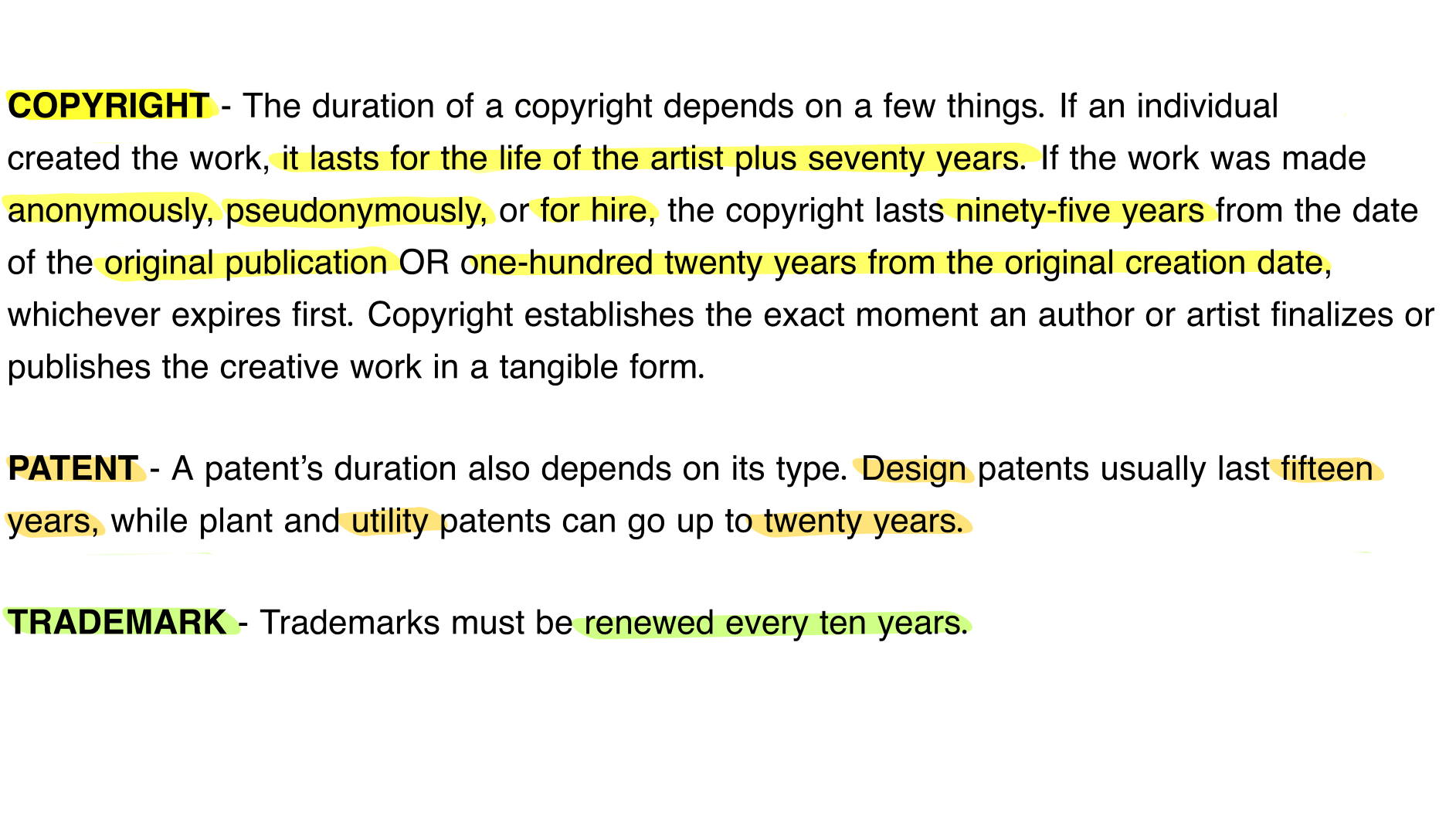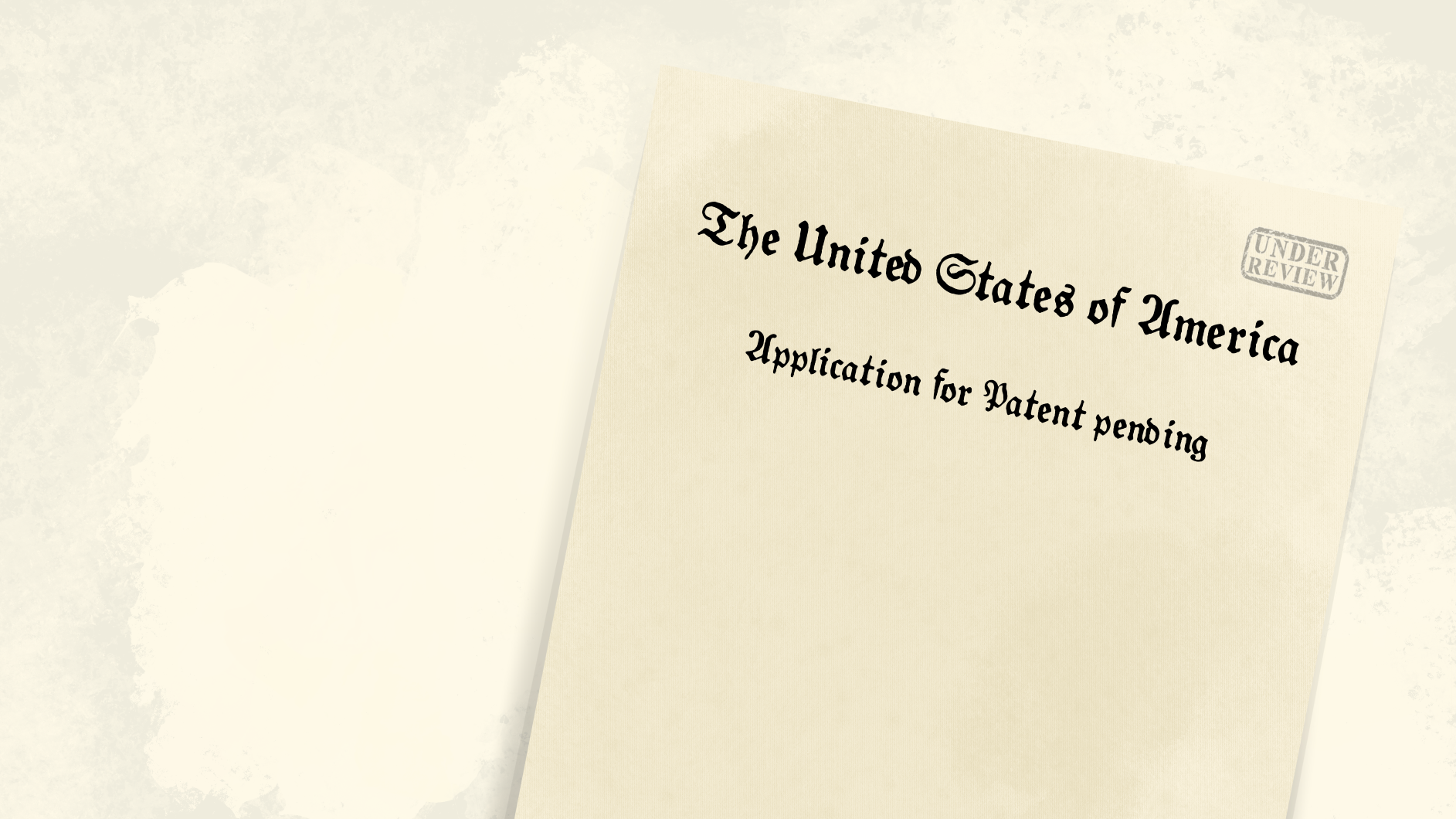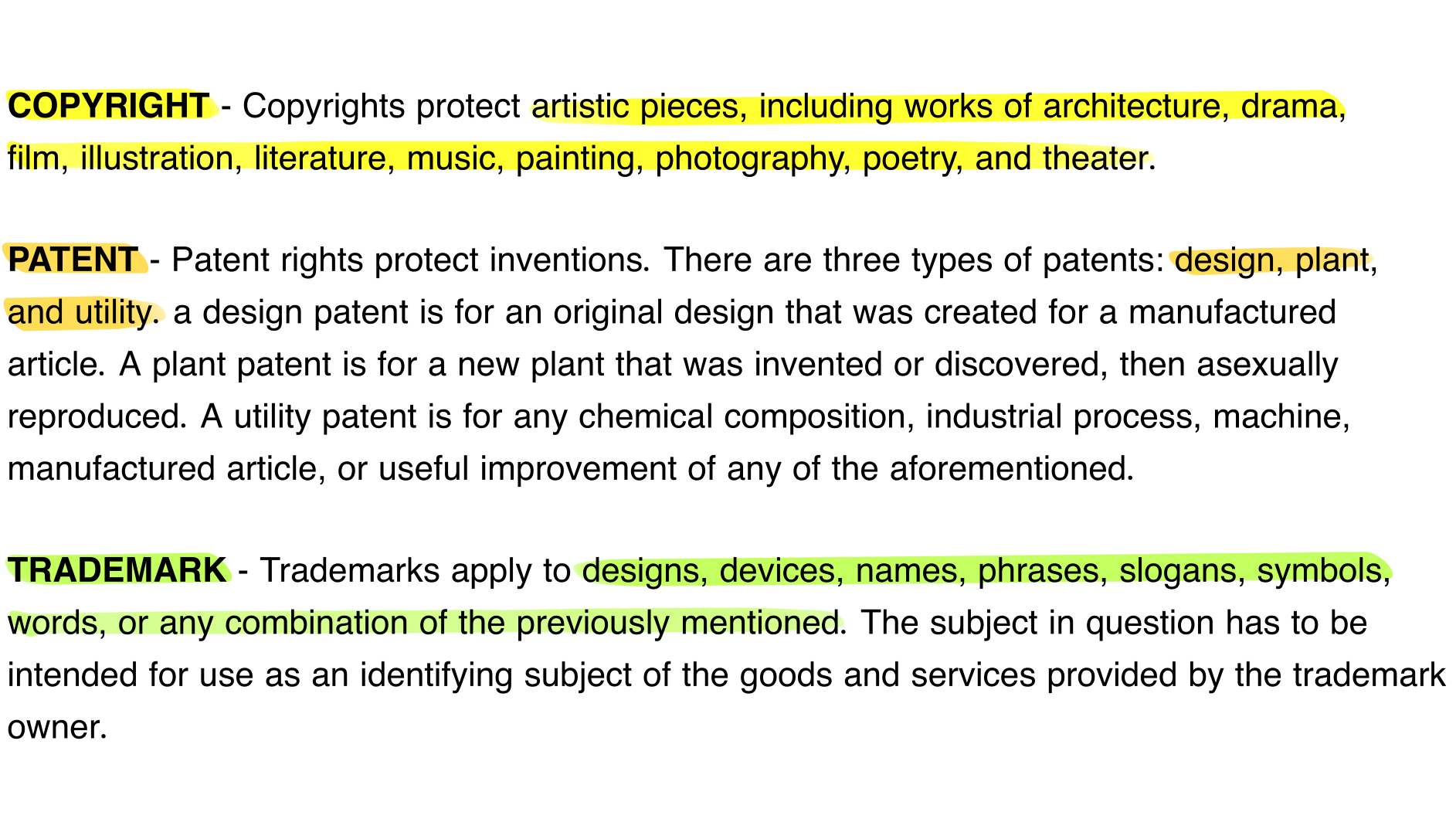Whether you’ve started a new business or are launching a new product or service, deciphering if you need a copyright, patent, or trademark can be confusing and frustrating. These serve very different purposes but are vital to protecting your business’s namesake, logos, and other intellectual property and assets. It is strongly encouraged to work with a lawyer whenever possible to secure these rights, but, at the very least, understanding the differences between your choices from the get-go can help save time and money in the long run.
Table of Contents
- What Property These Rights Apply To
- How Long the Rights Last
- What Rights are Secured
- Can They Be Transferred?
- Who Can Apply
- Where To Apply
- Helpful Forms
- Sources
What Property Do These Rights Apply To?
How Long do the Rights Last?

What Rights are Secured?
Copyright – A copyright gives the owner the exclusive right to reproduce the work; create “spin-off” pieces based on the work; sell, rent, lease, or lend copies of the work to the public; perform or display the work in public, and authorize these rights to others at their discretion.3
Patent – A patent excludes any person other than the patent owner from importing, making, selling, or using the patented invention without the owner’s express consent.4
Trademark – An federal trademark includes the exclusive right to use the mark for your goods or services and public notice of nationwide ownership.5
Can They be Transferred?
Copyright – A copyright can be left to a beneficiary in a will, a bequest, or a contractual reassignment of the copyright.3
Patent – A patent can be disbursed in probate, mortgaged, sold, willed, or transferred. Part-interest is generally permitted with patent-ownership and transfers.4
Trademark – The transfer of ownership of a trademark is called an “assignment.”7
Who Can Apply?
Copyright – The original artist or author can apply for a copyright. If an employee created the work for their employer within the parameters of their job responsibilities, then the employer owns the work and has the right to apply for the copyright.3
Patent – An inventor can apply for a patent directly for their invention. If the inventor is incapacitated or deceased, a legal representative or estate executor is authorized to apply. A joint-inventor can also apply without their co-inventor if the co-inventor can’t be found or refuses to apply. It’s important to note that a person who is financially invested in an invention but is not a creator is not eligible to apply for a patent without being designated by the inventor.4
Trademark – Anyone can file a trademark application with the U.S. Patent and Trademark Office.5
Where to Apply?
Copyright – Register at Copyright.gov
Patent – Apply at the United States Patent and Trademark Office
Trademark – Apply at the United States Patent and Trademark Office
Helpful Forms
- Cease and Desist Response Letters
- Copyright Infringement Cease and Desist Letter
- Model Photo Copyright Release Form
- Non-Disclosure (NDA) Agreements
- Patent/Invention Non-Disclosure Agreement (NDA) Template
- Photo Copyright Release Form
- Trademark Infringement Cease and Desist Letter
Sources
- https://www.youtube.com/watch?v=4cIBcl7dD4w
- https://www.uspto.gov/trademarks/basics/trademark-patent-or-copyright
- https://www.copyright.gov/what-is-copyright/
- https://www.uspto.gov/patents/basics
- https://www.uspto.gov/trademarks/basics
- https://www.uspto.gov/about-trademarks#:~:text=How%20long%20does%20a%20trademark,timely%20files%20all%20necessary%20documents
- https://www.uspto.gov/trademarks/trademark-assignments-change-search-ownership

